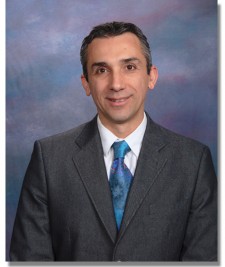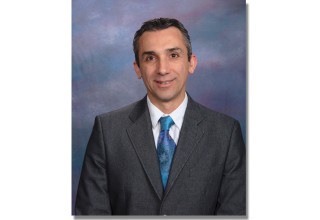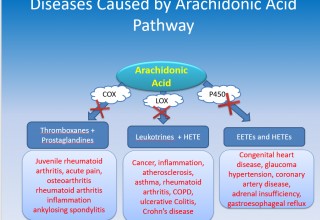Robert Gadimian: Curcumin Is a True Natural Wonder Drug (Part 2)

LOS ANGELES, November 7, 2017 (Newswire.com)
-
In an article entitled, “A True Natural Wonder Drug Part 1,” Robert Gadimian of Rophe Pharma described the anti-oxidant, anti-inflammatory health benefits of curcumin and how it works to interfere with the arachidonic acid pathway. In addition to acting as anti-inflammatory agent, Robert Gadimian points out, probably the most important health benefit of curcumin is that it can aid treatment regiments employed to fight cancer.
Curcumin Spice Boosting Immune System
In addition to acting as anti-inflammatory agent, Robert Gadimian points out, probably the most important health benefit of curcumin is that it can aid treatment regiments employed to fight cancer.
Robert Gadimian, CEO of Rophe Pharma
Curcumin aids in fighting against cancer in several ways which include strengthening the immune system. Robert Gadimian explains that any boost to the immune system allows it to more effectively identify cancer cells and then work on the cell level to kill those cells.
Immune System Important to Fight Cancer
A number of activities of curcumin, which are exerted in a chemopreventive and a directly therapeutic manner, indicate that it may be a potential anticancer remedy. Although the results have been obtained in animal models, curcumin has been demonstrated to be active in various other in vitro models, and the dosages are comparable to those used in humans. In vitro and in vivo studies have indicated that curcumin prevents carcinogenesis by affecting two primary processes: angiogenesis and tumor growth (1).
Turmeric and curcuminoids influence tumor angiogenesis through multiple, interdependent processes (2): i) Action at the level of transcription factors associated with inflammatory processes and early growth response protein which reduces the expression of IL8 in pancreatic and head and neck cancer cell lines and prevents the induction of VEGF synthesis; ii) inhibition of angiogenesis mediated by NO (nitric oxide) and iii) inhibition of COX2 and 5LOX; iv) action at the level of angiogenic factors: VEGF, the primary factor for migration, sprouting, survival and proliferation during angiogenesis, and basic fibroblast growth factor (2).
Curcumin induces cell death in numerous animal and human cell lines, including leukemia, melanoma, and carcinomas of the breast, lung, colon, kidney, ovaries and liver (3). It appears to function by caspasedependent and independent (mitochondrial) mechanisms, which are associated with the presence and absence of p53.
Melanoma Inhibitor
Robert Gadimian explains that the topical application of curcumin combined with the tumor promoter TPA, twice per week for 20 weeks, to female CD1 mice markedly inhibited papilloma formation (4). In further studies, Huang et al demonstrated that curcumin inhibited UVinduced dermatitis in mouse skin (5-7).
Jiang et al demonstrated that curcumin is able to induce apoptosis and inhibit the proliferation of melanoma cells (8).
Pancreatic Tumors Reduced
In a xenograft model study, pancreatic cancer cells were injected subcutaneously into the side of the abdomen of female nude mice (9). Subsequently, liposomal curcumin was injected into these animals. This treatment reduced tumor size and decreased the expression of CD31 in addition to that of VEGF and IL8, indicating that curcumin suppressed pancreatic carcinoma growth in murine xenograft models and inhibited tumor angiogenesis (10).
Prostate Cancer Cells Killed
Androgendependent LNCaP prostate cancer cells were injected subcutaneously into mice fed with a 2% curcumin containing diet for up to 6 weeks (11). Curcumin significantly increased the extent of apoptosis, as measured by an in situ cell death assay, and caused a reduction in cell proliferation, as measured by a BrdU incorporation assay (12).
Ovarian Cancer Tumor Reduced
Robert Gadimian says that In order to evaluate the effect of curcumin against ovarian cancer, a group of animals were treated with curcumin alone or in combination with docetaxel (13). Curcumin alone induced a 49–55% reduction in mean tumor growth compared with control animals, while the combination of curcumin with docetaxel resulted in a 77% reduction in mean tumor growth compared with the controls.
Lung Cancer Nodules Decreased
In an animal study, the administration of curcumin decreased the number of lung tumor nodules and inhibited lung metastasis of melanoma (13). Therefore, it is possible to use curcumin in order to arrest the metastatic growth of tumor cells.
1. Maheshwari RK, Singh AK, Gaddipati J, Srimal RC. Multiple biological activities of curcumin: A short review. Life Sci. 2006;78:2081–2087. doi: 10.1016/j.lfs.2005.12.007.
2. Yance DR, Jr, Sagar SM. Targeting angiogenesis with integrative cancer therapies. Integr Cancer Ther. 2006;5:9–29. doi: 10.1177/1534735405285562.
3. Karunagaran D, Rashmi R, Kumar TR. Induction of apoptosis by curcumin and its implications for cancer therapy. Curr Cancer Drug Targets. 2005;5:117–129. doi: 10.2174/1568009053202081.
4. Huang MT, Wang ZY, Georgiadis CA, Laskin JD, Conney AH. Inhibitory effects of curcumin ontumor initiation by benzo[a]pyrene and 7,12dimethylbenz[ a]anthracene. Carcinogenesis. 1992;13:2183– 2186.
5. Huang MT, Ma W, Lu YP, Chang RL, Fisher C, Manchand PS, Newmark HL, Conney AH. Effects
of curcumin, demethoxycurcumin, bisdemethoxycurcumin and tetrahydrocurcumin on 12Otetradecanoylphorbol13acetateinduced tumor promotion. Carcinogenesis. 1995;16:2493–2497.
6. Huang MT, Ma W, Yen P, Xie JG, Han J, Frenkel K, Grunberger D, Conney AH. Inhibitory effects
of topical application of low doses of curcumin on 12Otetradecanoylphorbol13acetateinduced
tumor promotion and oxidized DNA bases in mouse epidermis. Carcinogenesis. 1997;18:83–88.
7. Huang MT, Smart RC, Wong CQ, Conney AH. Inhibitory effect of curcumin, chlorogenic acid,
caffeic acid and ferulic acid on tumor promotion in mouse skin by 12Otetradecanoylphorbol13acetate.
Cancer Res. 1988;48:5941–5946.
8. Jiang AJ, Jiang G, Li LT, Zheng JN. Curcumin induces apoptosis through mitochondrial pathway
and caspases activation in human melanoma cells. Mol Biol Rep. 2015;42:267–275.
9. Li L, Braiteh FS, Kurzrock R. Liposomeencapsulated curcumin: In vitro and in vivo effects on
proliferation, apoptosis, signaling and angiogenesis. Cancer. 2005;104:1322–1331.
10. Dorai T, Cao YC, Dorai B, Buttyan R, Katz AE. Therapeutic potential of curcumin in human
prostate cancer III. Curcumin inhibits proliferation, induces apoptosis and inhibits angiogenesis of
LNCaP prostate cancer cells in vivo. Prostate. 2001;47:293–303.
11. Menon LG, Kuttan R, Kuttan G. Inhibition of lung metastasis in mice induced by B16F10 melanoma
cells by polyphenolic compounds. Cancer letters. 1995;95:221–225.
http://www.abc6.com/story/36648259/robert-gadimian-curcumin-is-a-true-natural-wonder-drug-part-1
http://www.wboc.com/story/36648259/robert-gadimian-curcumin-is-a-true-natural-wonder-drug-part-1
http://www.wtol.com/story/36648259/robert-gadimian-curcumin-is-a-true-natural-wonder-drug-part-1
http://www.wafb.com/story/36648259/robert-gadimian-curcumin-is-a-true-natural-wonder-drug-part-1
http://investor.biospace.com/biospace/news/read/35139195/robert-gadimian-curcumin-is-a-true-natural-wonder-drug-part-1
http://www.wdam.com/story/36648259/robert-gadimian-curcumin-is-a-true-natural-wonder-drug-part-1
Source: Robert Gadimian - Owner of Rophe Pharma

